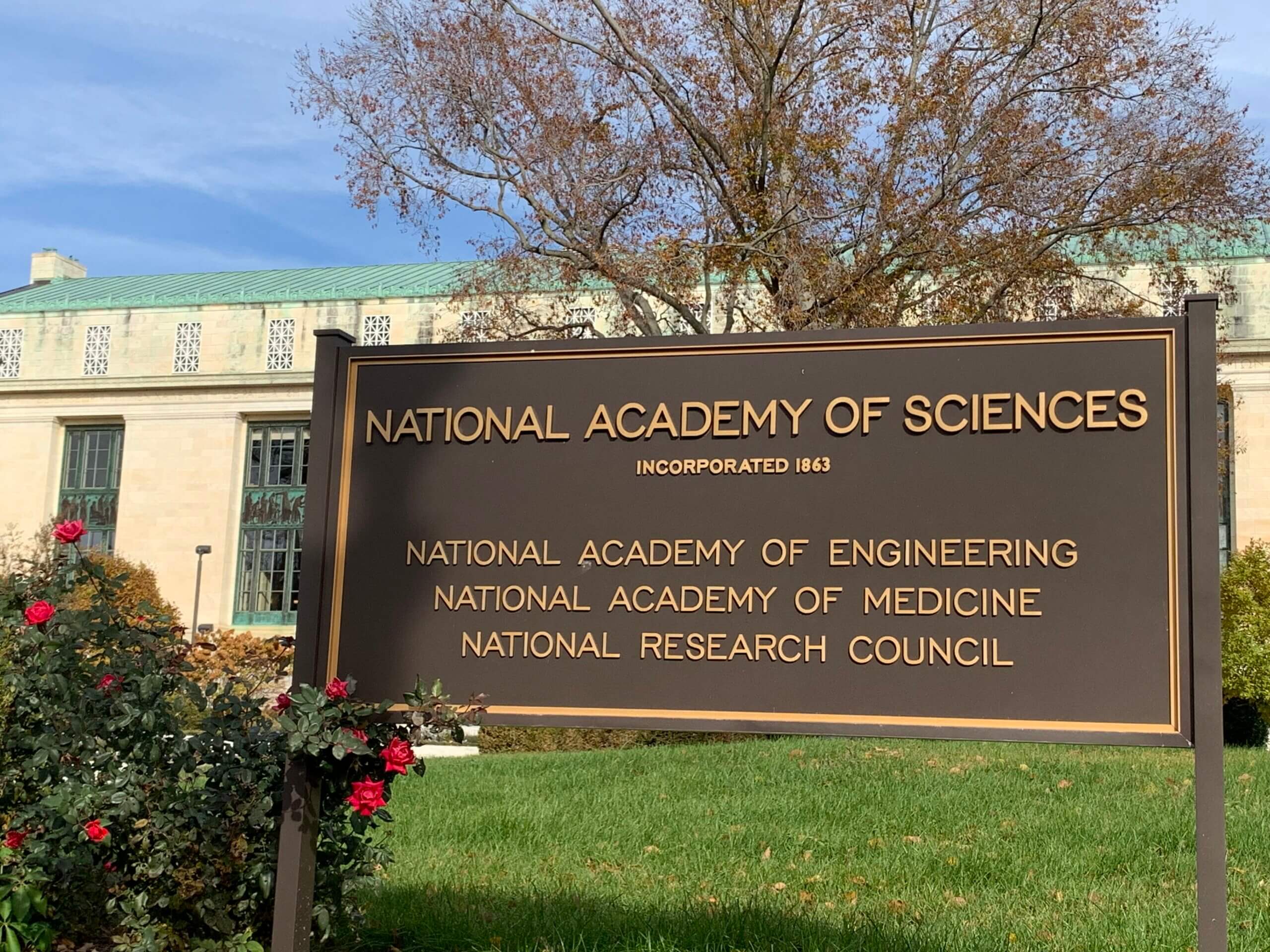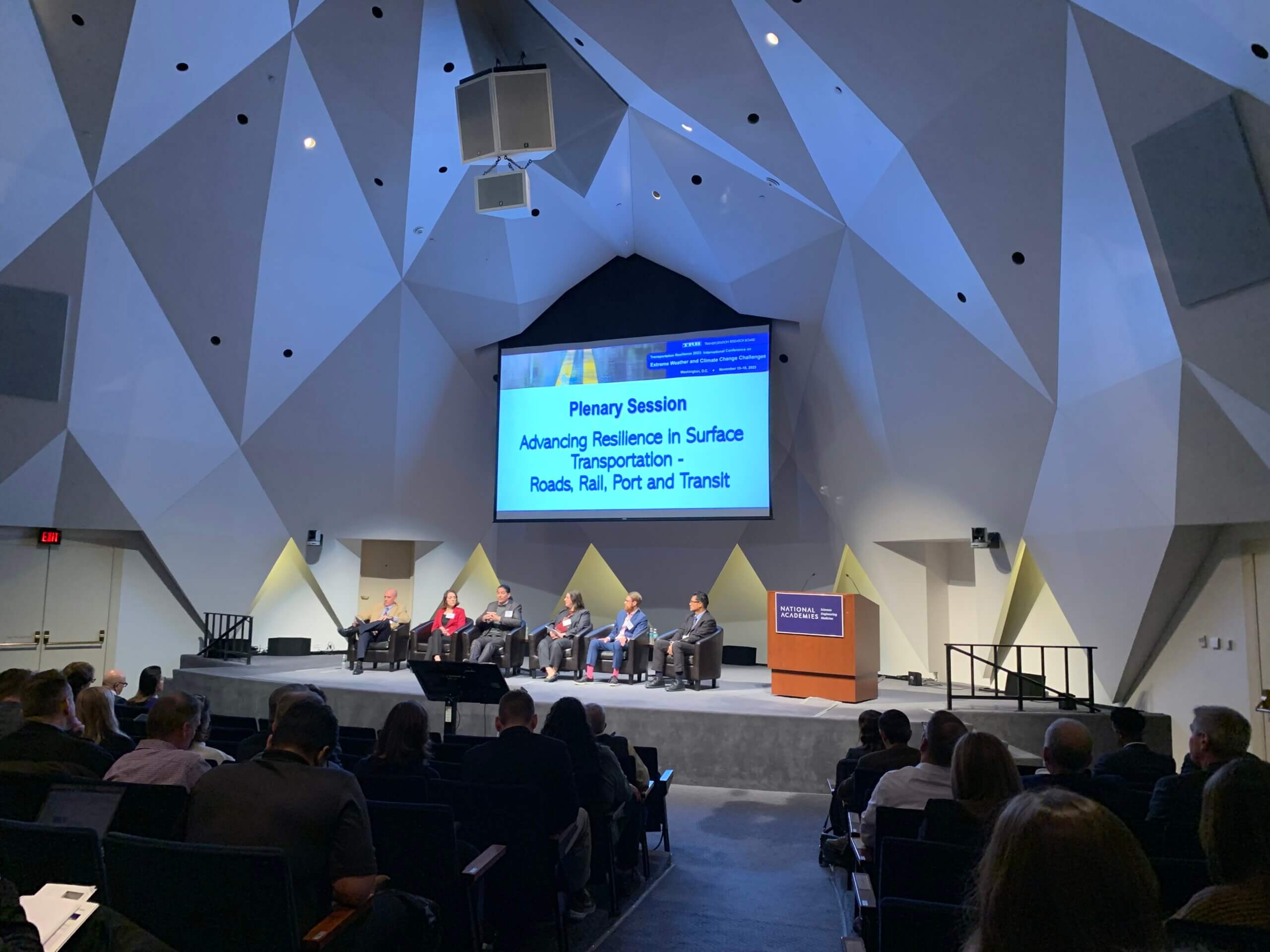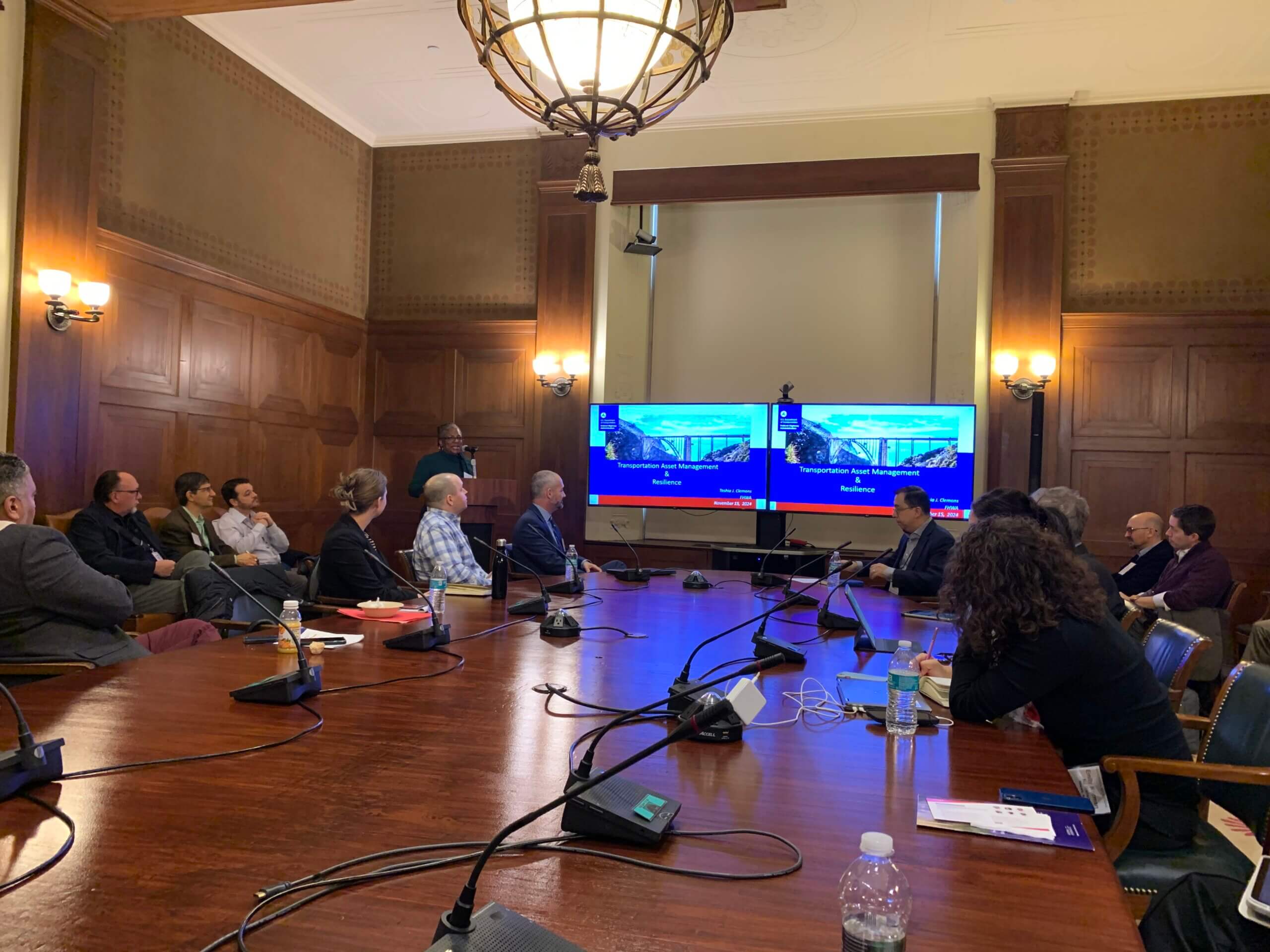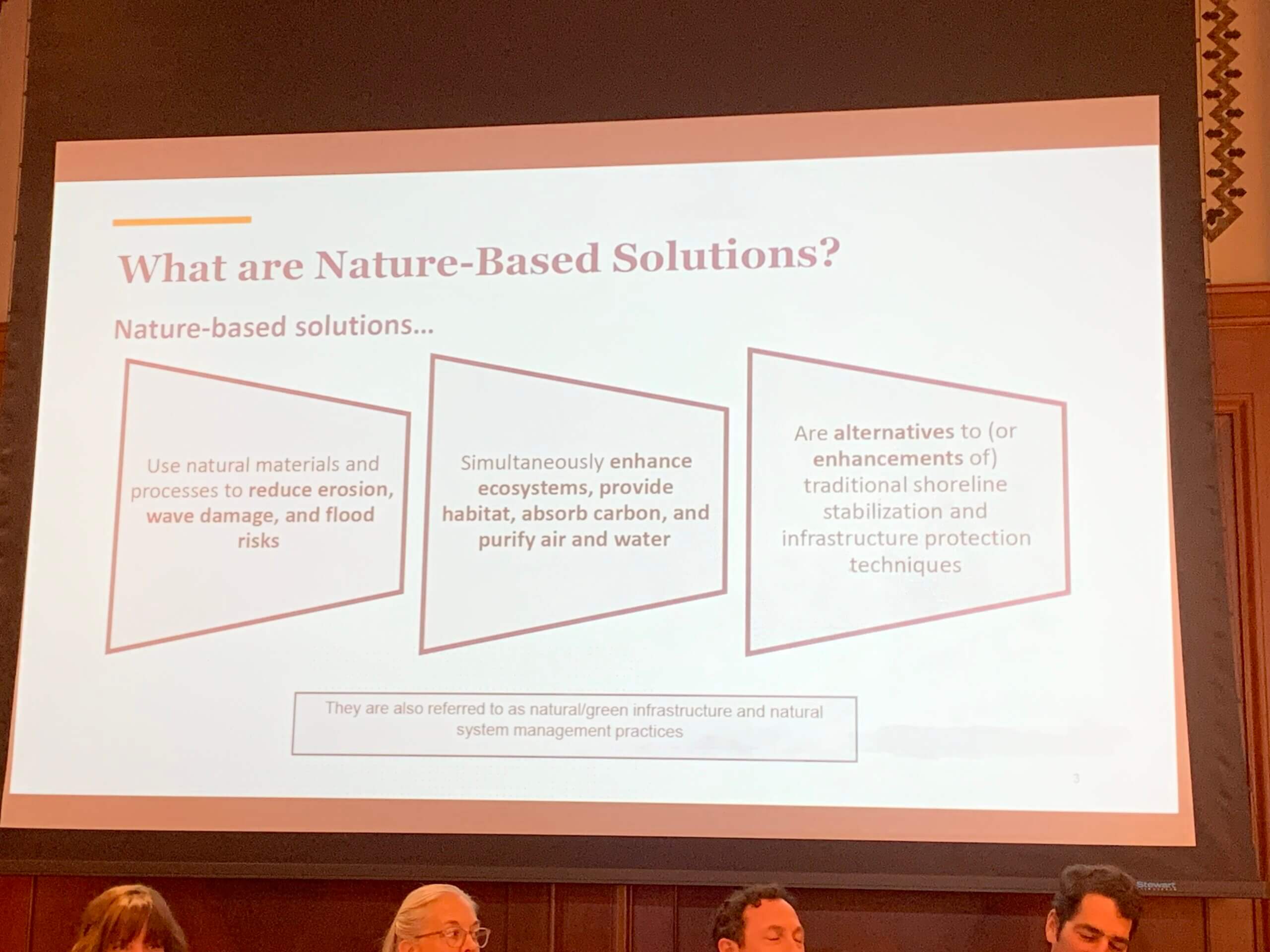In November, NVCOG Transportation Engineers Karen Svetz and Kevin Ellis attended the Transportation Resilience International Conference on Extreme Weather and Climate Change Challenges held at the National Academies of Sciences, Engineering, and Medicine in Washington, D.C.
Attendees learned about emerging best practices and state-of-the-art research results on how to adapt transportation networks to the potential impacts of climate change and extreme weather events that are becoming increasingly prevalent in our country and around the world.
During the conference, presenters from the Federal Highway Administration, other states, as well as other countries, shared how they conduct research, collect data, analyze the data, quantify the risk, and prepare resilience plans. The objective of the planning is to identify resilience needs, develop specific strategies to anticipate, prepare for and mitigate events that put the transportation network at risk of disruption and damage.
Climate-related events can damage roads, bridges, railways, ports, and other transportation assets. These events include river and stream flooding, changes in sea level, drought, excessive rainfall, wildfires, changes in temperature, and the like.
With the likelihood of these events increasing in frequency, it is important to create plans and strategies with the expectation that the damages, deaths, and disruption to the affected communities can be better anticipated and reduced.






